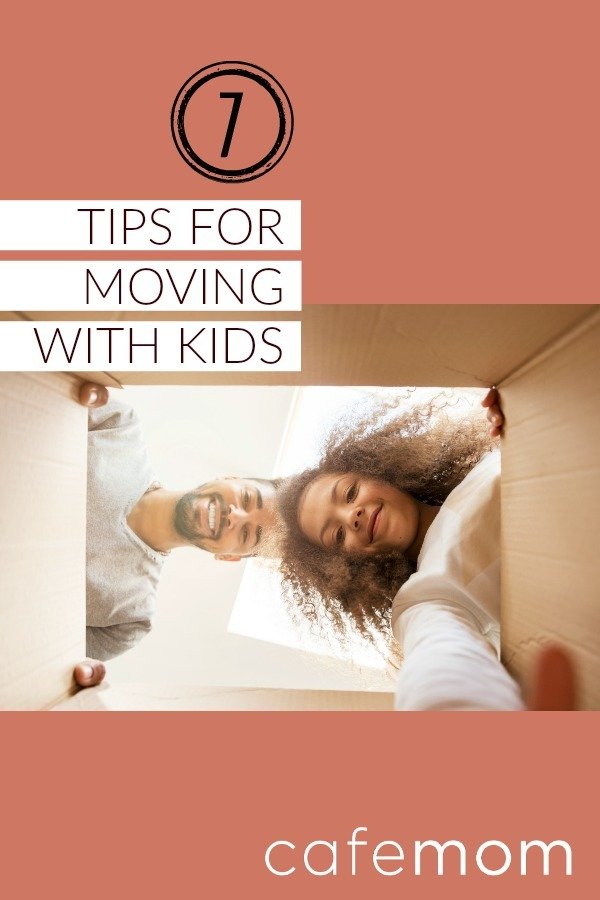Today, Dr. Mary is addressing ways to prepare your child for a move.
Q: We will be moving to another state this summer. My daughters will be going into second and fourth grade and have always attended the same school, with the same set of friends, and we have always lived in our current town. I'm worried about how they will adjust. Is there anything I can do to help them?
A: I can understand your concern. Moving in and of itself is a stressful event (for both kids and adults), let alone having to leave established friendships and routines. Starting a new school can be a scary thing for some kids, but it doesn't have to be. First of all, there may be a benefit to moving over the summer. It allows your kids to finish their current school year with their friends and say goodbye to teachers along with everyone else. Overall, it may be less disruptive (both academically and socially) for everyone, compared to moving during the school year. Secondly, the good news is that there are some things you can do in advance to help this transition:
1. Do your research. Even before you officially move, once you know your school district, gather information about your kids' new school online. One resource is GreatSchools, a website that gives information about all public, private, and charter schools across the country. Additional information can be found at the US Department of Education website. Nowadays, many (if not most) school districts, schools, and even teachers have their own websites, so check these out too. Here you are likely to find things like summer reading lists, photos from activities from the school year, links to online learning resources, and a calendar of upcoming events. Sharing this information with your children may make them less anxious and perhaps even a bit excited about what's ahead.
2. Meet the neighbors. Here's a "state the obvious," but I have to say it: Meet your neighbors and have them introduce your girls to children living nearby. Encourage your kids to invite new friends to your house. At the same time, explore other avenues to help your children make friends before school begins. Check out programs at the local park district, YMCA, and other recreational facilities. Is there a particular dance studio or art school that many kids favor?
3. Make contact. When you know what school your kids will be attending, before school begins, make an appointment to speak with the principal. Get a tour of the school and ask a lot of questions. For example, find out what extracurricular activities the school offers throughout the year and when they're offered. Do they have a chess club? Is there a school musical and/or choir? Is there a school garden? Where can your daughters expect to go on field trips? Do students get the opportunity to work on community giving (volunteer) projects throughout the year? If your kids are used to being involved in organized activities, giving them this information will help them look forward and allow both you both to prepare.
4. Ask questions. Along the same lines, ask the principal (as well as other parents you meet in your neighborhood) about the prevalent school "norms." For instance, what type of clothing do most kids wear? Is there a dominant fashion going around the school? How do kids typically decorate their lockers? Do most kids carry backpacks or messenger bags? Are there particular community-based sports organizations that a lot of the students tend to join? In my area, there is a soccer organization that is extremely popular among the students at my daughter's school. It's a given that at least several kids from each class at every grade are involved. Knowing these subtle and not so subtle social standards can help your kids better fit in when they start school. If you're moving from a warm climate where flip-flops are customary year-round to a state with cold, snowy winters, it's likely that there will be a whole other set of norms around winter weather wear and gear. And don't be surprised if the physical layout of the school is very different from what you're used to.
5. Plan a visit. Before school starts, take your children to their new school and show them around. If possible, have your kids meet their teachers before the first day. Teachers are almost always preparing for the start of school the week before kids arrive, so this may be an ideal time. Some schools have a Meet the Teacher Day a day or two before school officially starts. Talk with your daughters' teachers privately and let them know about your daughters' personalities and possible concerns. Teachers will often assign a "buddy" to a new student for the first few days to help her feel welcome and to make sure she feels comfortable navigating the school.
6. Get involved. Once school has started, get involved. Attend Back to School Night and teacher conferences. If you can, become a regular volunteer. This may help your kids feel more secure in their new surroundings.
7. Address feelings. In spite of all you do, one or both of your kids may still need some extended time to adjust. Be patient and allow your kids to talk about how they're feeling. It's okay to let them know that making new friends takes time. Maintain your family routines; if every Friday was movie night in your previous house, continue the tradition in your new home. Show your children that they can maintain their old friendships through phone calls, letters, and email. It may help them to hear about how you have dealt with these issues in the past and what you will be doing now to make new friends. Sometimes reading books with your children can stimulate very meaningful conversations. Books about moving and change include the following: Amber Brown Is Not a Crayon by Paula Danziger (ages 7-9); Jack Adrift: Fourth Grade Without a Clue by Jack Gantos (ages 9-12); My Best Friend Moved Away by Nancy L. Carlson (ages 5-8); and My Name Is Maria Isabel by Alma Flor Ada (ages 7-10).
Moving is not always easy, but a little preparation can create a smoother runway for what would otherwise be a bumpier landing.
Dr. Mary Rosen is a school psychologist, licensed counselor, graduate school instructor, and parent.





